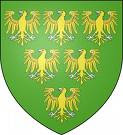Yes, it's full of inaccuracies! Channel 5 went to work on Mel Gibson's 'epic', although Gibson doesn't get all the blame. It all stems from an American visiting Scotland with the surname Wallace and becoming intrigued about William Wallace. He then set out to write a book from a human viewpoint, not a historical one - yes, he really said that!
The title 'Braveheart' comes from a poem written by 'Blind Harry' in 1470 - 165 years after Wallace's death. The purpose for the poem? Propaganda. The Scots were worried James III was becoming too friendly with the English, and so looked back in history to find a hero for an independent Scotland - and Blind Harry - who wasn't blind - chose Wallace. The Bailey family sponsored 'Blind Harry', and he wrote one of their ancestors into the poem as Wallace's wife. It seems no-one knows who Wallace was married to.
The blue woad and kilts worn by Gibson's army were easily dismissed, as was the alleged 'Wallace sword' which turned out to be made of 3 separate weapons moulded together. The weapons were also dissected. Particularly interesting was the testing of the warbows from Edward Ist's army. Wallace's army would never have been able to withstand the onslaught from the English army. The battle of Stirling bridge was an opportunistic victory, the result of an ambush by Wallace and his fellow leader Robert of Lundy, who later died of his wounds - hence he wasn't chosen as the hero of the poem by 'Blind Harry'. Wallace was not an 'ordinary' man, but a younger son of a knight, who first appears in a document in an act of theft.
As for Wallace being the father of Edward III, this was scoffed at for obvious reasons - Isabella was a child, still living in France. This easy dismissal meant there was no mention of Edward II or Piers/Phillip being thrown out of the window. Oh well......
Wallace did his best to evade capture - and you can hardly blame him as he knew what fate would await him. He fled to France to try and persuade Philip IV to help him and involve the Pope, which failed.
The only shock for me was that this film won 5 Oscars - yes, really! Including one for best film.
1 week ago



2 comments:
That's really interesting about 'Blind' Harry's poem being propaganda inspired by James III - I didn't know that! Can't wait to see this!
You'll love this documenatry:>
Post a Comment